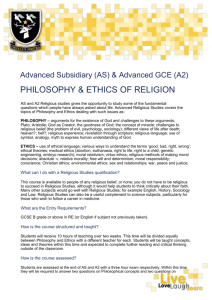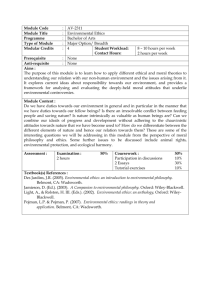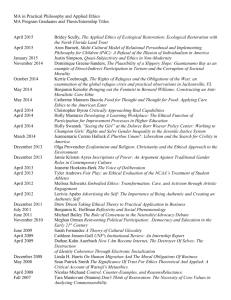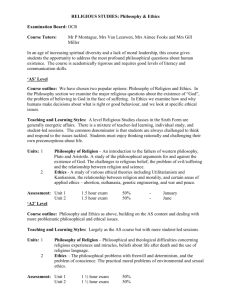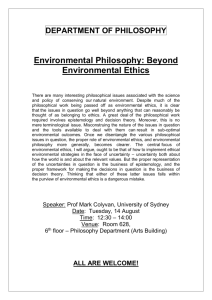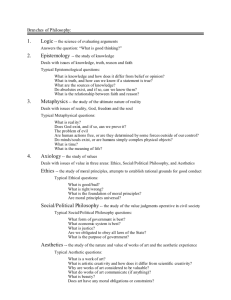Religious Studies (Philosophy & Ethics)
advertisement
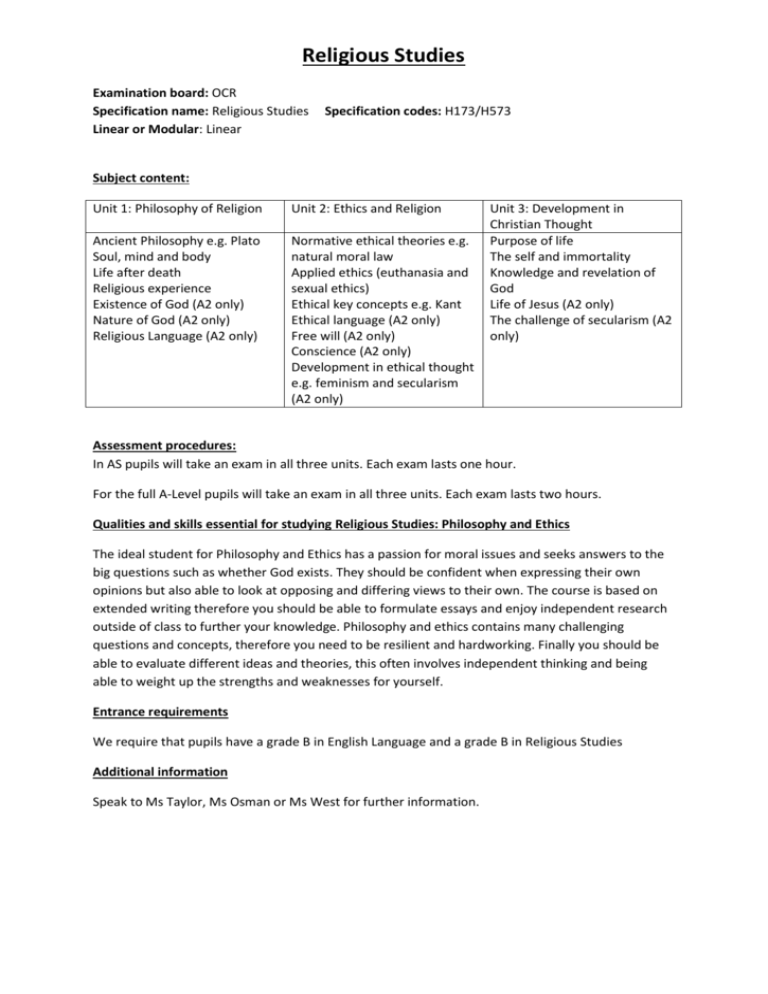
Religious Studies Examination board: OCR Specification name: Religious Studies Linear or Modular: Linear Specification codes: H173/H573 Subject content: Unit 1: Philosophy of Religion Unit 2: Ethics and Religion Ancient Philosophy e.g. Plato Soul, mind and body Life after death Religious experience Existence of God (A2 only) Nature of God (A2 only) Religious Language (A2 only) Normative ethical theories e.g. natural moral law Applied ethics (euthanasia and sexual ethics) Ethical key concepts e.g. Kant Ethical language (A2 only) Free will (A2 only) Conscience (A2 only) Development in ethical thought e.g. feminism and secularism (A2 only) Unit 3: Development in Christian Thought Purpose of life The self and immortality Knowledge and revelation of God Life of Jesus (A2 only) The challenge of secularism (A2 only) Assessment procedures: In AS pupils will take an exam in all three units. Each exam lasts one hour. For the full A-Level pupils will take an exam in all three units. Each exam lasts two hours. Qualities and skills essential for studying Religious Studies: Philosophy and Ethics The ideal student for Philosophy and Ethics has a passion for moral issues and seeks answers to the big questions such as whether God exists. They should be confident when expressing their own opinions but also able to look at opposing and differing views to their own. The course is based on extended writing therefore you should be able to formulate essays and enjoy independent research outside of class to further your knowledge. Philosophy and ethics contains many challenging questions and concepts, therefore you need to be resilient and hardworking. Finally you should be able to evaluate different ideas and theories, this often involves independent thinking and being able to weight up the strengths and weaknesses for yourself. Entrance requirements We require that pupils have a grade B in English Language and a grade B in Religious Studies Additional information Speak to Ms Taylor, Ms Osman or Ms West for further information.

